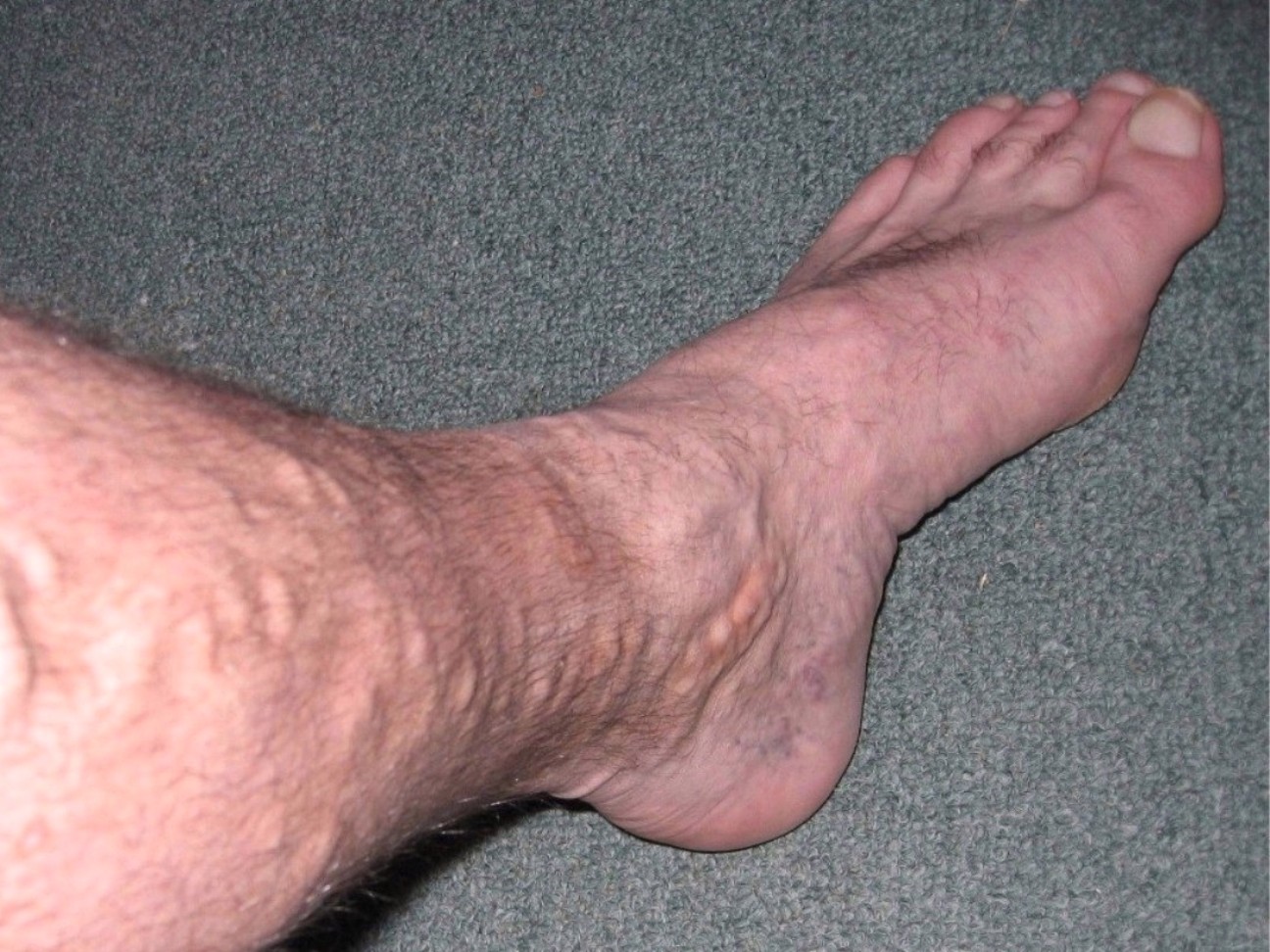What are the symptoms of varicose veins while pregnant?
Varicose veins during pregnancy can present with symptoms similar to those experienced outside of pregnancy, though they may be influenced by the physiological changes associated with pregnancy. Common symptoms include:
- Visible Veins: Enlarged, twisted, or bulging veins in the legs, often appearing blue or dark purple, may become more noticeable.
- Leg Pain or Discomfort: Aching, throbbing, or a heavy feeling in the legs, which can be exacerbated by standing or walking for long periods.
- Swelling: Swelling in the lower legs and ankles, which may become more pronounced as the day progresses or during hot weather.
- Itching or Burning: Itching or a burning sensation around the affected veins.
- Cramping: Muscle cramps or restless legs, particularly at night.
- Tiredness or Heaviness: A sensation of tiredness or heaviness in the legs, which may improve with elevation.
- Skin Changes: In more severe cases, skin changes such as eczema or ulceration can occur near the affected veins.
Pregnancy increases blood volume and pressure on the veins due to the growing uterus, which can contribute to the development or worsening of varicose veins. Symptoms may improve after delivery as the body returns to its pre-pregnancy state. If symptoms are severe or cause significant discomfort, consulting a healthcare provider is important for appropriate management and to rule out other conditions.
What are the causes of varicose veins while pregnant?
Varicose veins during pregnancy are caused by several factors related to the physiological changes that occur during this time. Key causes include:
- Increased Blood Volume: During pregnancy, blood volume increases significantly to support the growing fetus, putting extra pressure on the veins in the legs and pelvis.
- Hormonal Changes: Elevated levels of hormones, particularly progesterone, relax the vein walls and valves, making them more prone to stretching and weakening.
- Uterine Pressure: As the uterus expands, it exerts pressure on the veins in the pelvis, particularly the inferior vena cava (the large vein returning blood from the lower body to the heart). This pressure can impede blood flow and contribute to the development of varicose veins.
- Increased Venous Pressure: The increased blood volume and pressure from the expanding uterus lead to higher pressure in the veins of the legs, contributing to the formation of varicose veins.
- Genetic Predisposition: A family history of varicose veins can increase the likelihood of developing them during pregnancy.
- Prolonged Standing or Sitting: Pregnant women who spend long periods standing or sitting may experience worsened symptoms due to reduced blood flow and increased pressure on the veins.
- Weight Gain: The weight gained during pregnancy adds additional pressure on the veins in the legs and pelvis, exacerbating the risk of varicose veins.
- Physical Changes: The physical changes associated with pregnancy, including the growing uterus and changes in body posture, can contribute to venous pressure and varicose vein development.
These factors combined can lead to the formation or worsening of varicose veins during pregnancy. Symptoms often improve after delivery as hormone levels stabilize and the pressure on the veins decreases. However, maintaining a healthy lifestyle and consulting a healthcare provider can help manage symptoms and prevent complications.
What is the treatment for varicose veins while pregnant?
Treatment for varicose veins during pregnancy focuses on managing symptoms and preventing complications, with options that are safe and appropriate for both the mother and the developing fetus. Here are common approaches:
- Lifestyle Modifications:
- Exercise: Regular physical activity, such as walking or swimming, can improve circulation and reduce symptoms.
- Elevate the Legs: Elevating the legs periodically can help reduce swelling and discomfort.
- Avoid Prolonged Standing or Sitting: Taking breaks to move around or shift positions can alleviate pressure on the veins.
- Wear Supportive Garments: Maternity support stockings can provide gentle compression to improve blood flow and reduce swelling.
- Pain Relief:
- Over-the-Counter Pain Relievers: Acetaminophen may be used to manage pain, but other pain relievers should be avoided unless prescribed by a healthcare provider.
- Avoiding High Heels: Wearing comfortable, low-heeled shoes can reduce pressure on the legs.
- Skin Care: Keeping the skin moisturized can help prevent itching and discomfort associated with varicose veins.
- Consult a Healthcare Provider: For severe symptoms or complications, consult a healthcare provider. They can provide guidance on safe management strategies and, if necessary, refer you to a specialist.
- Minimize Risk Factors: Maintaining a healthy weight and managing other risk factors, such as avoiding constipation (which can increase abdominal pressure), can help prevent worsening of varicose veins.
While many women experience improvement in varicose veins after childbirth, addressing symptoms and following these recommendations can help manage the condition effectively during pregnancy.

Leave a Reply
You must be logged in to post a comment.